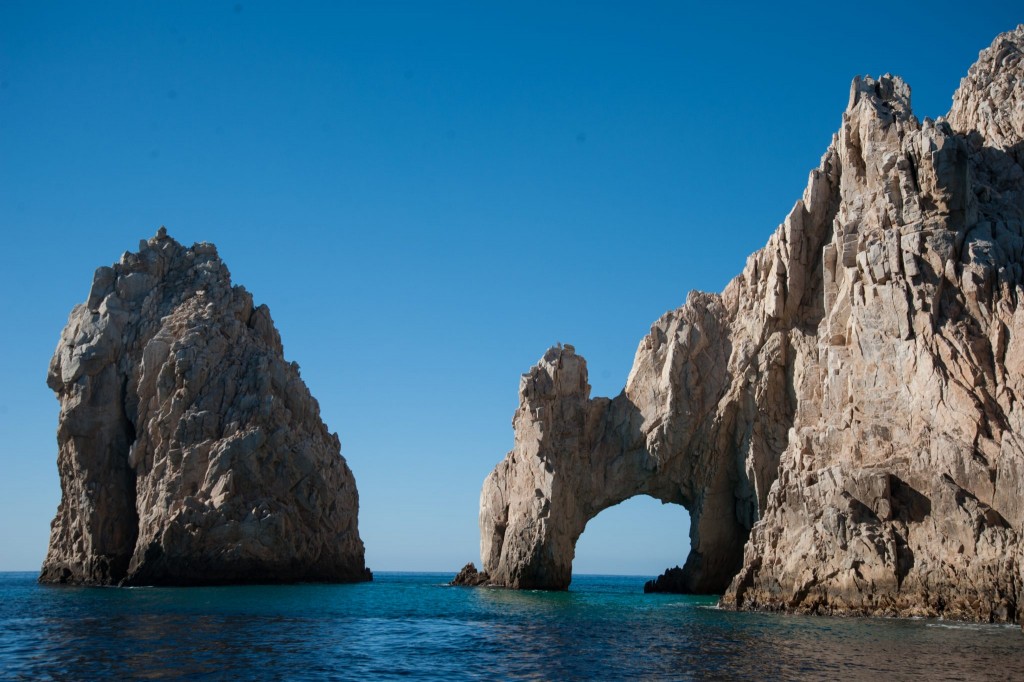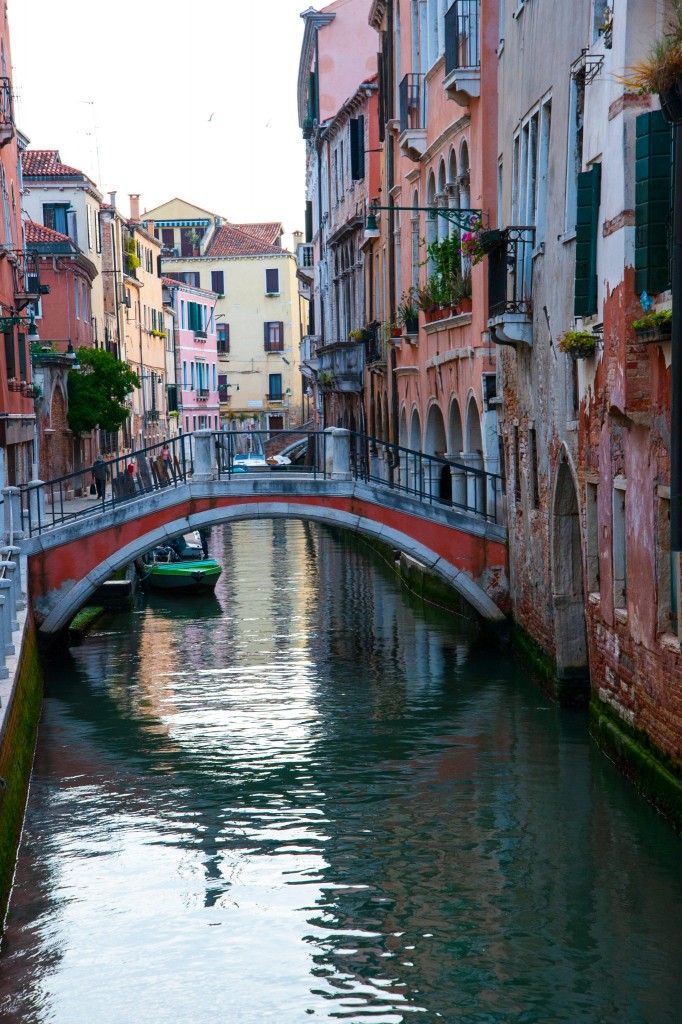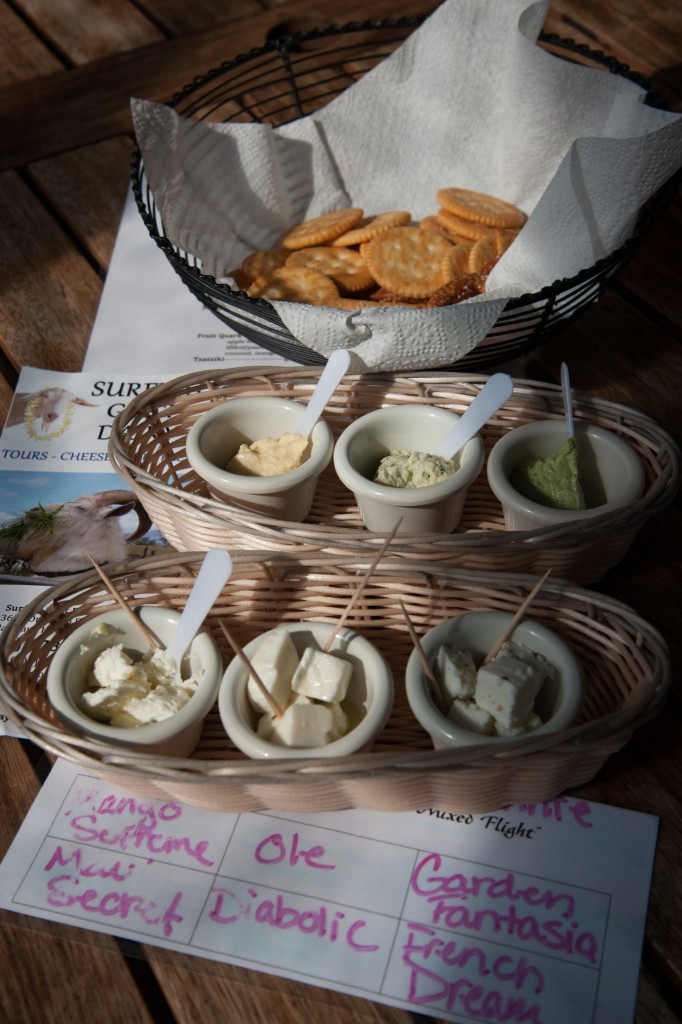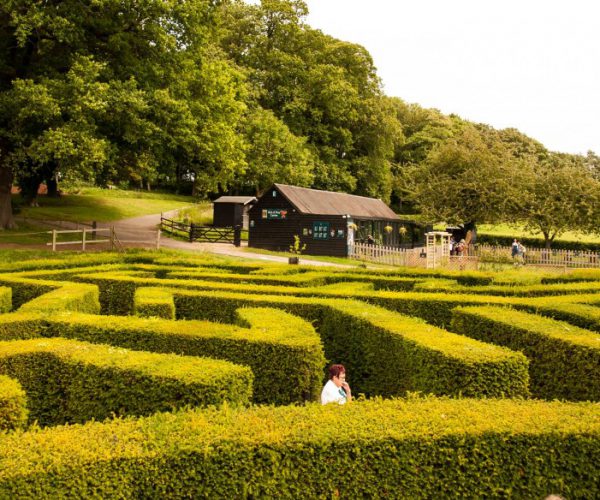The happiness facts are in:
- The Declaration of Independence declares “unalienable rights” of “life, liberty, and the pursuit of happiness.”
- His Holiness the 14th Dalai Lama reminds listeners that “the purpose of our life is to be happy.”
- Notable psychologists such as Harvard professor Daniel Gilbert and Cornell’s Dr. Thomas Gilovich have proven with statistical studies that in order to find greater happiness, one must acquire experiences.
The hunt for happiness is discussed around dinner tables, on mountain trails, in meditation circles, and is sought after from the most populated urban centers to the most remote villages. We all want it, so how do we get it?
Some people pursue external rewards while others look within themselves.
Psychologists today believe they’ve found the answer. Although the owners of shopping malls around the globe might disagree, science knows that buying more stuff does not bring joy; buying experiences does.

You decide: A week in Cabo San Lucas or a new sofa? Photo by Annette Thompson
At an early age, parents teach their children about financial security. Adults discuss financial planning and might remark about things such as when purchasing an $800 couch, it’s a good idea to have at least $800 to pay for that couch. For many, a week in Cabo San Lucas for spring break (which could cost the same price or more than the couch) would be considered a luxury. It’s hard to equate the two. It takes a long time to earn that money and the choice on what to spend it on isn’t always easy. George Carlin says “trying to be happy by accumulating possessions is like trying to satisfy hunger by taping sandwiches all over your body.”
In the past three decades, consumer spending has shifted. What was once an economy focused mainly on owning and purchasing has changed to one based on experiences and sharing of goods. The events industry is booming as more people are looking for ways to build community as opposed to solely expanding their ownership of stuff. Society is beginning to see the bigger picture.
Why buy more stuff with alternative options of ride-shares instead of car ownership, renting homes instead of owning, and even borrowing expensive handbags instead of purchasing one? Typically, products are like new cars: they plummet in value the moment they leave the lot. Even though the buyer enjoys the moment, eventually, that new car smell wears off and the once “new car” becomes the “everyday car.” We adapt.

Experiences are different. New people are met, laughter is shared, excitement is raised, and frustration reduced. Think about getting lost. When alone, it may be scary, when with a friend while traveling, it’s automatically considered an adventure. Even places such as Venice, Italy, encourage visitors to get lost walking its maze of streets and bridges. The tourism office knows you’ll discover a good time.
Experiences typically involve others. Shared experiences yield shared stories and even crappy experiences can one day turn into good stories — in fact, people love hearing them.
Businesses also have joined the experience bandwagon. Team building events such as weekly yoga classes or softball competitions have become popular job benefits. Employers host exercise challenges among their staff, Meetup groups are all the rage, and endless event apps flood our screens with invites to citywide picnics and group hiking expeditions. By building connections and enhancing social interactions, the ultimate happiness output increases. Today, one’s overall health and happiness is more a deal-breaker than an afterthought.

In a world where social media connects billions and selfies and food posts grab attention, people upload photos of experiences far more than things. More people are bound to Instagram photos of a rafting trip on the Colorado River, the old friend with whom they just shared a fabulous night out or the prettiest and most delectable milkshake in New York City far sooner than they’ll Snapchat their new shoes or fancy leggings. People are in charge of their own happiness.
As Gretchen Rubin, author of The Happiness Project says, ‘Happiness is the meaning and purpose of life’. It’s time to get behind the science. Put down that impulse buy and find an experience that celebrates joy and enhances happiness.


Leave a Reply